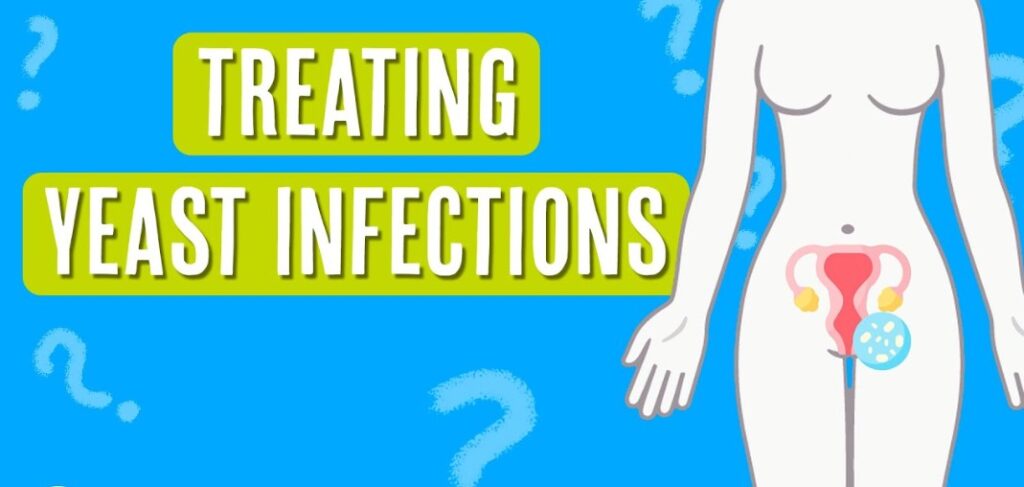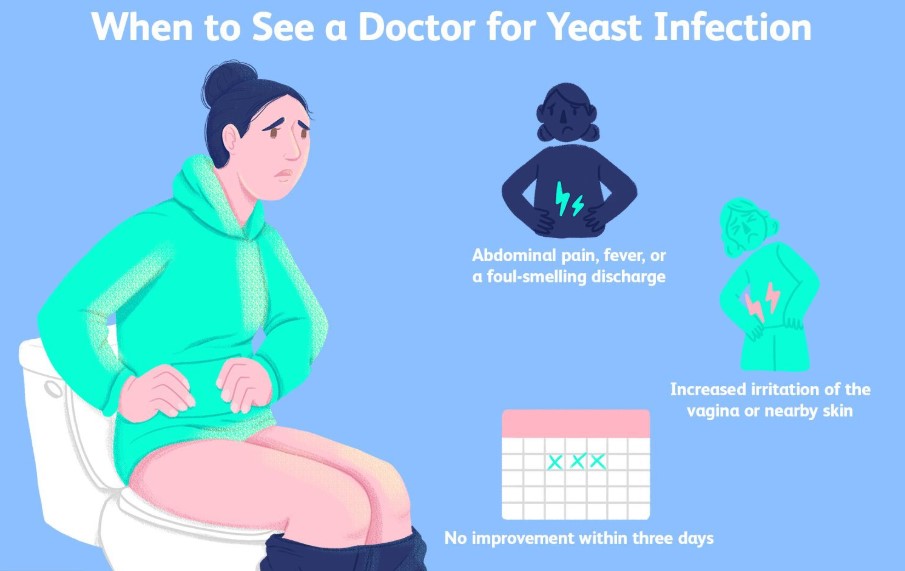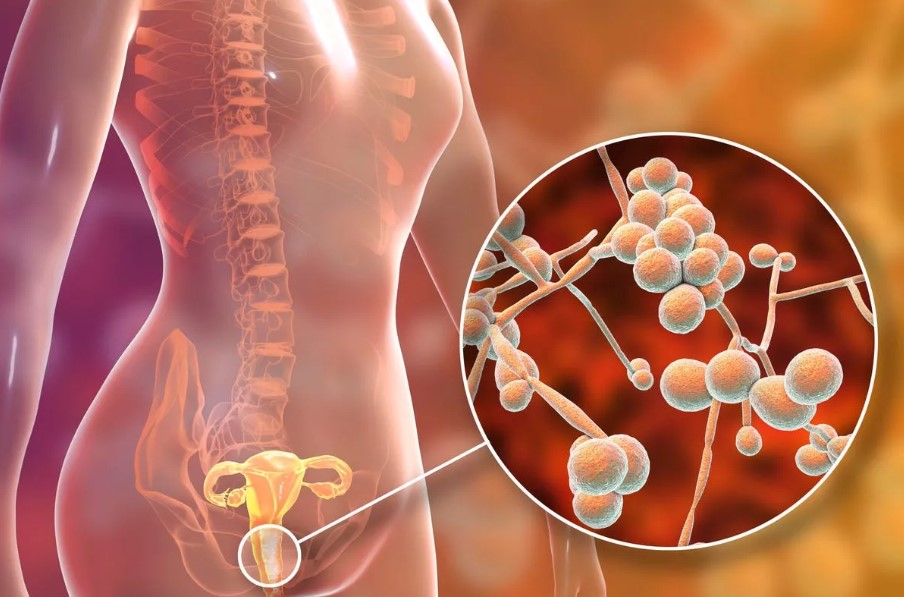
The condition known as vaginal yeast infection occurs frequently among women and impacts millions of people globally. You are among many women who experience itching together with discomfort or abnormal discharge from their vaginas. The following article explores vaginal yeast infections by examining their characteristics together with symptoms and origins and provides essential information about treatment methods and prevention strategies. The complete information you need about vaginal yeast infections can be found here whether you seek immediate relief or want to gain better knowledge about the condition.
What is a Vaginal Yeast Infection?
The fungus Candida albicans produces an overgrowth that causes vaginal yeast infections because it naturally exists in the vagina. A small amount of Candida normally exists without causing harm but specific factors enable its multiplication to result in infection. The medical community calls this infection a vaginal yeast infection and also names it vaginal candidiasis.
Vaginal Yeast Infection Symptoms
People with vaginal yeast infections may experience various symptoms which include:
- Itching and irritation around the vagina
- Burning sensation, especially during urination or intercourse
- Unusual discharge that may be thick and white, resembling cottage cheese
- Redness and swelling around the vaginal area
- Painful intercourse due to vaginal dryness
You should immediately get medical help when you see these symptoms. Yeast infections that remain without treatment may result in complications that cause discomfort to patients.
The Health Boosters website provides details about symptoms and treatment choices for yeast infections.
What Causes a Yeast Infection?
Multiple elements lead to the onset of vaginal yeast infections. The most common causes include:
- Antibiotic Use: This is because antibiotics can disrupt the normal balance of bacteria in the vagina and cause yeast overgrowth.
- Hormonal changes: Pregnancy, birth control or hormone therapy can alter the pH level of the vagina thus causing yeast infections.
- High Blood Sugar: Diabetes that is not well managed can create a favorable condition for the growth of yeast.
- Tight Clothing: Wearing tight and non-ventilated clothing should be avoided as they cause sweating and hence provide a suitable environment for yeast to thrive.
- Compromised immunity: Diseases such as HIV or drugs like steroids make the body vulnerable to infections.
To avoid yeast infection, one should take some precautionary measures, such as eating a balanced diet, taking enough water, and ensuring that one is clean.
For more information on how to prevent and treat vaginal yeast infections, please click on the following link to the Mayo Clinic.

Yeast Infection Treatments
The common ways of treating a vaginal yeast infection involve the use of antifungal drugs that may be administered in the following forms:
1. Vaginal Yeast Infection Creams
Clotrimazole or Miconazole creams which can be bought without a prescription are useful in the treatment of the infection. These creams are usually inserted into the vagina and they help in eradicating the fungus. To get the best results, follow the following instructions as indicated below.
2. Oral Medications
Fluconazole (Diflucan) is an example of prescription antifungal medication that is available as an oral tablet. This may be useful, especially in cases of recurring infections.
3. Home Remedies
Some women opt for natural remedies such as probiotics like yogurt with live cultures or coconut oil due to its antifungal effects. However, one should seek the services of a healthcare provider before trying out home remedies.
To get a detailed overview of the best treatments, please check WebMD.
How to Get Rid of a Yeast Infection in 24 Hours?
There is no sure way of eradicating a yeast infection in 24 hours; however, there are quick-relief antifungal medications that can be used:
- OTC antifungal creams or suppositories for quick relief
- Hydrocortisone creams to decrease inflammation and itching
- Using cold compresses on the affected area of the vagina
It is advisable to seek the services of a doctor to help you determine the best way to get quick relief.
Yeast Infection During Pregnancy
If you are pregnant and you think that you have a yeast infection, you must seek the help of your doctor. Pregnant women are also prone to yeast infections due to hormonal changes, but some remedies can be dangerous during pregnancy. Your doctor may prescribe safe drugs that will be applied topically, for instance, antifungal creams.
To learn more about yeast infections during pregnancy, you may visit the American Pregnancy Association.
Vaginal Yeast Infection Discharge
Another sign that is common in the case of a vaginal yeast infection is the presence of discharge. Normally, the discharge will be abundant, white, and chunky, which is similar to the texture of cottage cheese. It may also have a strong, yeasty smell.
If you have any kind of discharge, it is wise to find out if it is not due to other infections like bacterial vaginosis or any sexually transmitted infections. It is advisable to seek the services of your doctor for a proper diagnosis to be made.
For more information on various forms of vaginal discharge, go to Healthline.

Vaginal Yeast Infection Medication
There are creams, tablets, and suppositories used in the treatment of vaginal yeast infections. The following are some of the common antifungal drugs:
- Clotrimazole (Canesten)
- Miconazole (Monistat)
- Fluconazole (Diflucan)
These medications help to reduce the overgrowth of the yeast and also help to alleviate the symptoms of the infection.
For further information about the medication for vaginal yeast infection, visit MedlinePlus.
Yeast Infection Pictures
It is also important to know what a yeast infection looks like to be able to identify the symptoms easily. Usually, the affected skin will be red, and inflamed, and may be accompanied by a thick white pus. However, it is crucial to note that the symptoms are not unique, and therefore one should seek the help of a doctor for proper diagnosis.
Below are some images that will assist you in identifying the condition more easily: Yeast Infection Pictures Woman.
Best Antibiotic for Vaginal Infection
Antibiotics are not used to treat yeast infections because they can lead to worsening of the condition by altering the balance of bacteria in the vagina. However, if a bacterial infection is suspected to be present together with the yeast infection, the doctor may recommend an antibiotic course.
To get up-to-date information on antibiotics and vaginal infections, visit The National Institute of Health.
Final Thoughts
It is important to know about the vaginal yeast infection and how to prevent it to ensure that your health is well taken care of. If the symptoms are detected early enough and treated, the complications are easily avoided and the patient is relieved of pain. There are a lot of remedies that you can try to alleviate the symptoms of athlete’s foot, which include topical antifungal creams, oral medications, and even home remedies that you can use.
If you experience any of the symptoms of a vaginal yeast infection, do not self-diagnose and treat yourself, seek professional advice from your doctor. For further useful and insightful topics on health, visit Health Boosters.
FAQs About Vaginal Yeast Infections
- Is it true that yeast infection can lead to pain during intercourse?
Indeed, vaginal yeast infections can cause pain or discomfort during intercourse because the vagina becomes inflamed and dry.
- How long does it take for the yeast infection to be treated?
In most cases, the symptoms will subside after a few days if the patient receives appropriate treatment. Full resolution may take 1-2 weeks.
- Is yeast infection a cause of infertility?
Yeast infection does not have any impact on the fertility of a woman or a man. However, if the infections are not treated, they can cause complications.
- Are yeast infections contagious?
Yeast infections are not sexually transmitted but they can be aggravated by sexual activities and intercourse.
External References:
